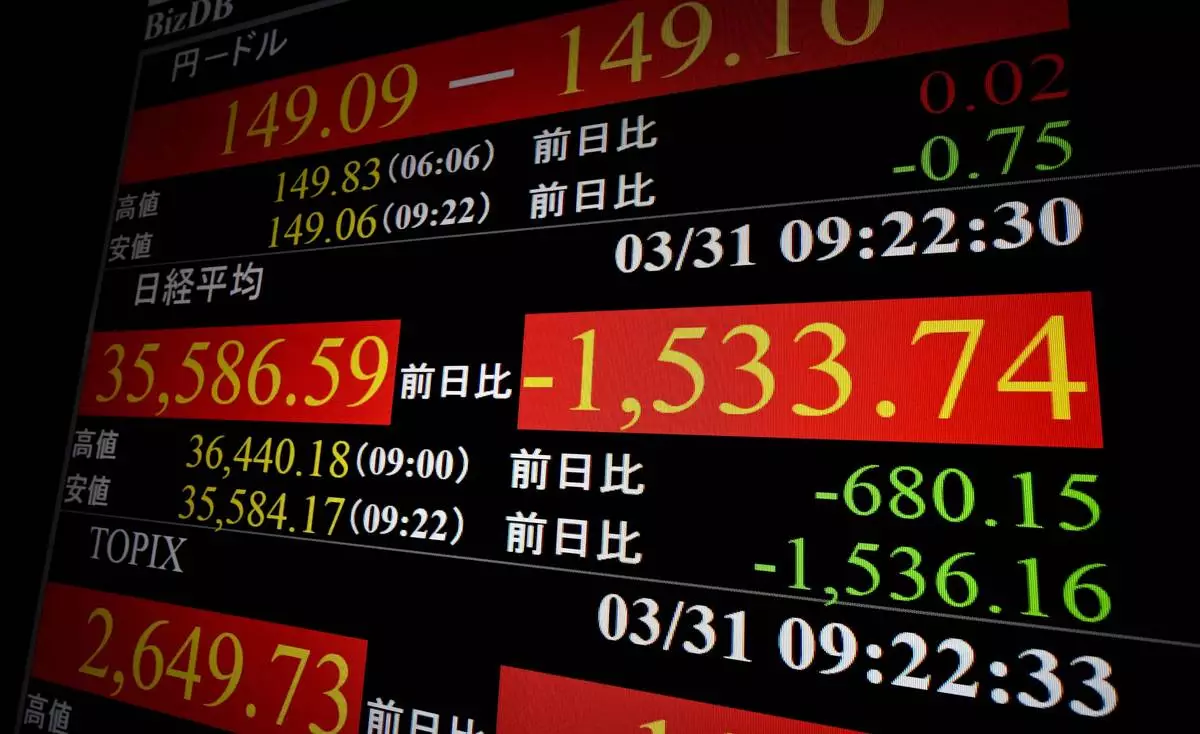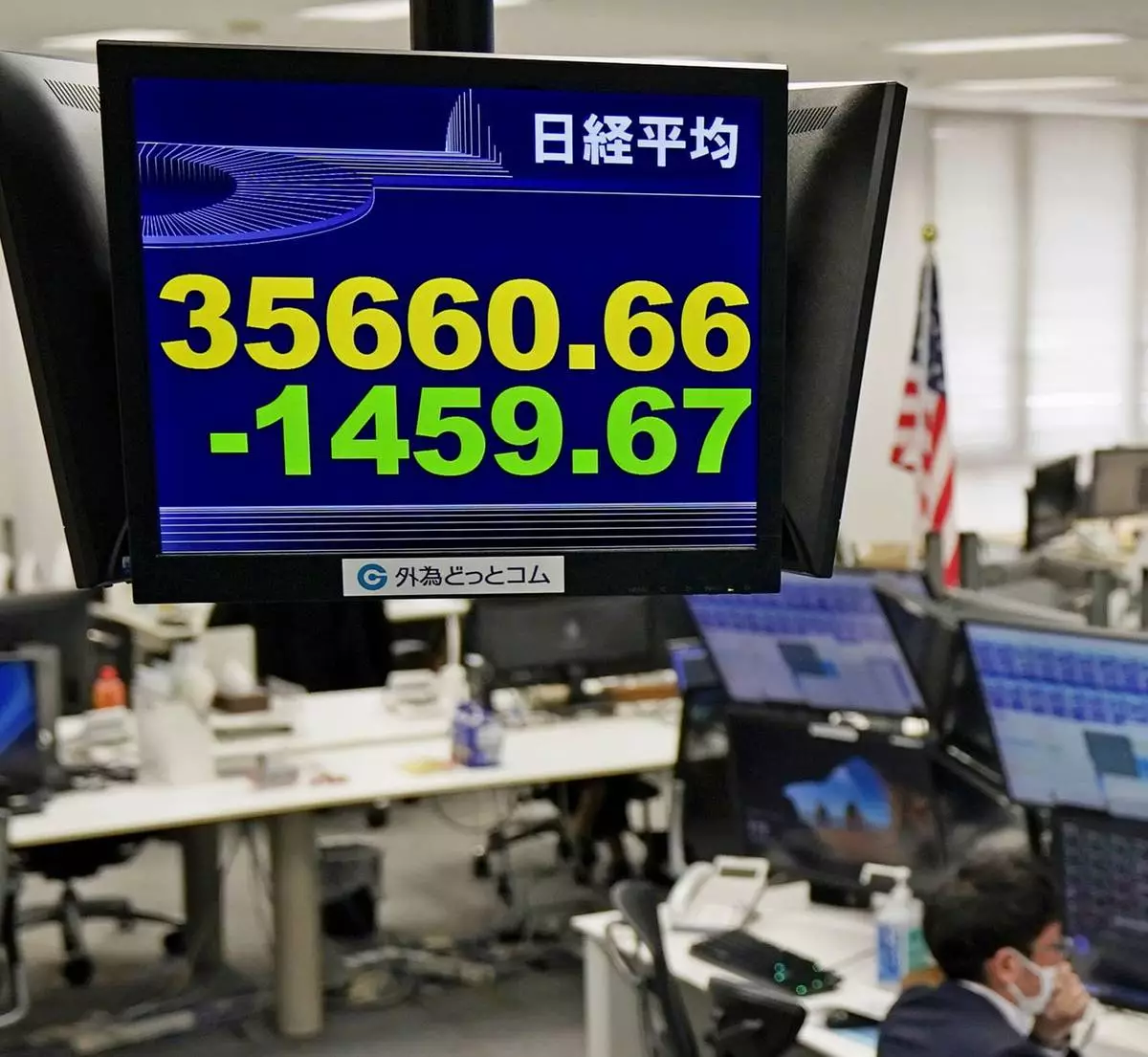WASHINGTON (AP) — A federal judge on Thursday ordered the Trump administration to preserve records of a text message chat in which senior national security officials discussed sensitive details of plans for a U.S. military strike against Yemen’s Houthis.
U.S. District Judge James Boasberg barred administration officials from destroying messages that were sent over the encrypted messaging app Signal earlier this month.
A nonprofit watchdog, American Oversight, requested the order. A government attorney said the administration already was taking steps to collect and save the messages.
The Atlantic published the entire Signal chat on Wednesday. Its editor-in-chief, Jeffrey Goldberg, had been added to a discussion that included Defense Secretary Pete Hegseth, national security adviser Michael Waltz, Secretary of State Marco Rubio, Vice President JD Vance and Director of National Intelligence Tulsi Gabbard.
On the chat, Hegseth provided the exact timings of warplane launches and when bombs would drop before the attacks against Yemen’s Houthis began earlier this month. Hegseth laid out when a “strike window” would open, where a “target terrorist” was located and when weapons and aircraft would be used.
The images of the text chain posted by The Atlantic show that the messages were set to disappear in one week.
American Oversight sued this week to ensure that the records are kept in accordance with the Federal Records Act. The group suspects that administration officials routinely use Signal to communicate.
“Defendants’ use of a non-classified commercial application even for such life-and-death matters as planning a military operation leads to the inevitable inference that Defendants must have used Signal to conduct other official government business,” American Oversight’s attorneys wrote in a court filing.
Boasberg limited his order to messages sent between March 11 and March 15.
“We are still ascertaining what records the agencies have,” Justice Department attorney Amber Richer said.
“I’m glad we could figure out a solution,” the judge later said. He instructed the government to provide him with an update Monday. Boasberg said his order will expire April 10 “in the event that Defendants’ measures are satisfactory to the Court.”
White House press secretary Karoline Leavitt has said no classified information was posted to the Signal chat. Hegseth’s spokesman, Sean Parnell, said in a statement Wednesday that “there were no classified materials or war plans shared. The Secretary was merely updating the group on a plan that was underway.”
Gabbard and CIA Director John Ratcliffe told members of the Senate Intelligence Committee on Tuesday that Hegseth was responsible for determining whether the information was classified.
American Oversight’s attorneys argued that the public is entitled to access government records even if they are auto-deleting messages that originated on officials’ private phones.
“This is nothing less than a systematic effort to evade the rules for record retention in the federal government,” they wrote. “There is no legitimate reason for this behavior, which deprives the public and Congress of an ability to see the actions of government.”
Boasberg, chief judge of the district court in Washington, has been at odds with the administration over a separate case involving flights deporting Venezuelan immigrants to El Salvador under an 18th century wartime law. He temporarily blocked the flights and ordered at least two planes carrying immigrants to turn around, but that didn’t happen. The judge has vowed to determine whether the administration ignored his turnaround order.
Boasberg, who was nominated by Democratic President Barack Obama, noted during Thursday’s hearing that his order shouldn’t harm the government since the agencies already were working to preserve the Signal messages.

Signal app on a smartphone is seen on a mobile device screen Tuesday, March 25, 2025, in Chicago. (AP Photo/Kiichiro Sato)
Wall Street followed global markets lower early Monday ahead of the Trump administration's latest tariff rollout later this week.
Futures for the S&P 500 sank 1.2%, while futures for the Dow Jones Industrial Average dropped 0.7%. Futures for the Nasdaq, where many of the biggest U.S. technology companies trade, tumbled 1.6%.
Tesla's woes continued as Elon Musk's electric car company slid 6.1%. Tesla is down 42% since Trump took office Jan. 20, with losses driven in part by the public perception of Musk's oversight of the new Department of Government Efficiency that’s slashing government spending.
Tesla sales in Europe and the U.S. have fallen, partly due to Musk’s political shift to the right. Protestors have targeted the automaker’s showrooms, vehicle lots and charging stations, with some resorting to vandalism, including burning privately owned vehicles.
Apple shares were down less than 1% after France’s antitrust watchdog fined the tech giant $162 million over the rollout of a privacy feature resulted in abuse of competition law.
Shares of the mortgage company Rocket fell 3.5% after it announced that it is buying competitor Mr. Cooper in an all-stock deal valued at $9.4 billion. Mr. Cooper shares soared more than 26%. The deals comes just weeks after Rocket acquired real estate listing company Redfin.
The price of gold hit a record high before inching back down to $3,149 an ounce. Investors continue to pull out of equities in search of traditional safe havens like gold.
Markets worldwide have been anxious over a potentially toxic mix of worsening inflation and a slowing U.S. economy because households are afraid to spend due to the deepening trade war, escalated U.S. by President Donald Trump.
Trump has dubbed Wednesday “Liberation Day,” when he will roll out tariffs tailored to each of the United States’ trading partners that he promises will free the the country from foreign goods.
The details of Trump’s next round of import taxes are still sketchy. Most economic analyses say average U.S. families would have to absorb the cost of his tariffs in the form of higher prices and lower incomes. That has contributed to significant decline in U.S. consumer confidence this year, which has alarmed investors.
On Friday, the S&P 500 fell 2% for one of its worst days in the last two years. It was its fifth losing week in the last six, helping to drive the index down 5% this year. The Dow sank 1.7% and the Nasdaq composite fell 2.7% and is down more than 10% in 2025.
Many of the countries that run trade surpluses with the U.S. and depend heavily on export manufacturing are in Asia, Stephen Innes of SPI Asset Management said in a commentary.
“Asia is ground zero. Of the 21 countries under USTR (U.S. Trade Representative) scrutiny, nine are in Asia,” Innes noted.
Tokyo’s benchmark fell 4.1% to 35,617.56, while the Hang Seng in Hong Kong lost 1.3% to 23,119.58.
The Shanghai Composite index declined 0.5% to 3,335.75.
In South Korea, the Kospi fell 3% to 2,481.12, while Australia’s S&P/ASX 200 sank 1.7%, closing at 7,843.40.
Taiwan’s Taiex lost 4.2%.
European markets opened lower. Britain's FTSE 100 slid 1.4%, while France's CAC 40 and Germany's DAX each fell 2%.
Thailand’s SET lost 1.3% after a powerful earthquake centered in Myanmar rattled the region, causing widespread destruction in the country, also known as Burma, and less damage in places like Bangkok.
Shares in Italian Thai Development, developer of a partially built 30-story high-rise office building under construction that collapsed, tumbled 27%. Thai officials said they are investigating the cause of the disaster, which left dozens of construction workers missing.

A currency trader walks by the screens showing the foreign exchange rate between U.S. dollar and South Korean won, left, and the Korean Securities Dealers Automated Quotations (KOSDAQ) at a foreign exchange dealing room in Seoul, South Korea, Monday, March 31, 2025. (AP Photo/Lee Jin-man)

The screens showing the Korea Composite Stock Price Index (KOSPI), left, the foreign exchange rate between U.S. dollar and South Korean won and the Korean Securities Dealers Automated Quotations (KOSDAQ) are seen at a foreign exchange dealing room in Seoul, South Korea, Monday, March 31, 2025. (AP Photo/Lee Jin-man)

An electronic stock board shows that Nikkei stock average dropped over 1,500 Japanese yen in Tokyo Monday, March 31, 2025. (Kyodo News via AP)

A currency trader works under an electronic stock board at a foreign currency trading firm in Tokyo Monday, March 31, 2025. (Kyodo News via AP)





















































